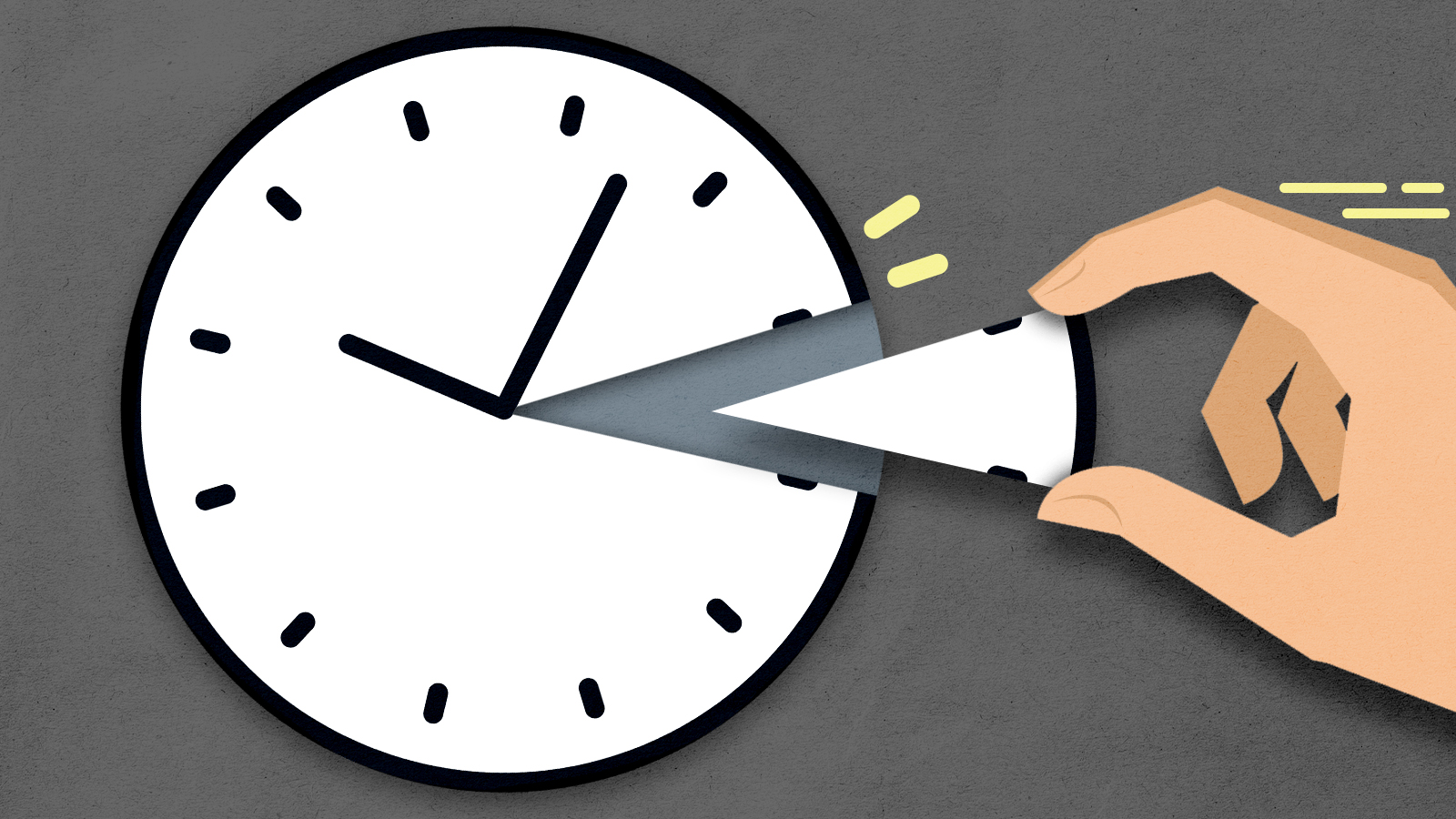Should we keep daylight saving time permanently?
The sharpest opinions on the debate from around the web


A free daily email with the biggest news stories of the day – and the best features from TheWeek.com
You are now subscribed
Your newsletter sign-up was successful
In March, the Senate approved the Sunshine Protection Act, which would make daylight saving time permanent across the U.S. The law passed the upper chamber unanimously, but still needs to pass the House and be signed by the president, CNN reports. The unanimous Senate support, however, suggests widespread bipartisan agreement.
With the clocks "falling back" on Sunday, Nov. 6, the question of the necessity of changing our clocks twice a year returns. While the government seems to agree that clocks should stay on daylight saving time, the scientific community holds a different opinion. Is keeping daylight saving time permanently a good idea?
Daylight saving should be permanent
Many people view turning the clocks back as unnecessary, preferring to preserve the late-afternoon sunshine that daylight saving time affords us. "Making daylight saving time permanent would, almost certainly, give the people what they want," argues Helaine Olen, a columnist for The Washington Post.
The Week
Escape your echo chamber. Get the facts behind the news, plus analysis from multiple perspectives.

Sign up for The Week's Free Newsletters
From our morning news briefing to a weekly Good News Newsletter, get the best of The Week delivered directly to your inbox.
From our morning news briefing to a weekly Good News Newsletter, get the best of The Week delivered directly to your inbox.
She explained how COVID-19 illuminated (no pun intended) people's need for sunshine in the afternoon saying, "students and workers alike slept later in the morning and stayed up longer at night — a schedule that resembles the later-day start of daylight saving time."
That opinion is shared by Sen. Ed Markey (D-Mass.) and Sen. Marco Rubio (R-Fla.), who wrote in an opinion on CNN that "the biannual transition of 'spring forward' and 'fall back' disrupts circadian sleeping patterns, causing confusion, sleep disturbances, and even an elevated risk to heart health." One thing Democrats and Republicans can actually agree on? "We could all use a bit more sunshine."
Daylight saving goes against science
While the Senate may be in agreement, scientists have a different view. In an opinion in Scientific American, writer Randyn Charles Bartholomew explained how "[l]ess sunlight in the morning makes it harder for us humans to get started in the day, and more sunlight in the evening makes it harder to get to sleep."
This debate has come up before when, during the 1970s, the U.S. attempted to enshrine daylight saving time. The result was an increased number of accidents and injuries among school children because they started school in the dark, Bartholomew writes. "Our wakefulness is governed by a circadian rhythm inside us linked to the solar cycle."
A free daily email with the biggest news stories of the day – and the best features from TheWeek.com
Many believe the inconvenience of changing a clock twice a year is worth it for the opportunity to start the day in the sun. As Philip Bump argued in the Post, "Nowadays, many of the clocks you refer to most often — on your computer or phone or even a smartwatch — make the time adjustment automatically."
"Congress will do what it does and one should certainly not assume that its decisions will uniformly be to the public's benefit."
We should stick to standard time instead
Sleep experts believe the real answer lies neither in changing the clocks, nor sticking to daylight saving, but in adopting permanent standard time, which is the "fall back" time that begins on Nov. 6. The American Academy of Sleep Medicine (AASM) released a statement shortly after the Senate passed the Sunshine Protection Act saying "making daylight saving time permanent overlooks potential health risks that can be avoided by establishing permanent standard time."
A study in 2019 found that an extra hour of sunlight in the evening leads to 19 fewer minutes of sleep on average — and while that seems small, it could lead to chronic sleep deprivation, reports The New York Times. And as Michael Herf notes at Medium, "scientists have shown that seeing light in the morning is essential to health, and without it, we get more cancer, diabetes, and obesity."
Ken Wright, a professor at the University of Colorado, Boulder, shares the same opinion: "Yes, we should be getting rid of the time change. But the science suggests we should be sticking with standard time, not daylight saving time."
Devika Rao has worked as a staff writer at The Week since 2022, covering science, the environment, climate and business. She previously worked as a policy associate for a nonprofit organization advocating for environmental action from a business perspective.
